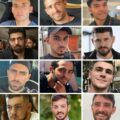 The Hostages Are Home and We Can Finally Dance Again
The Hostages Are Home and We Can Finally Dance Again
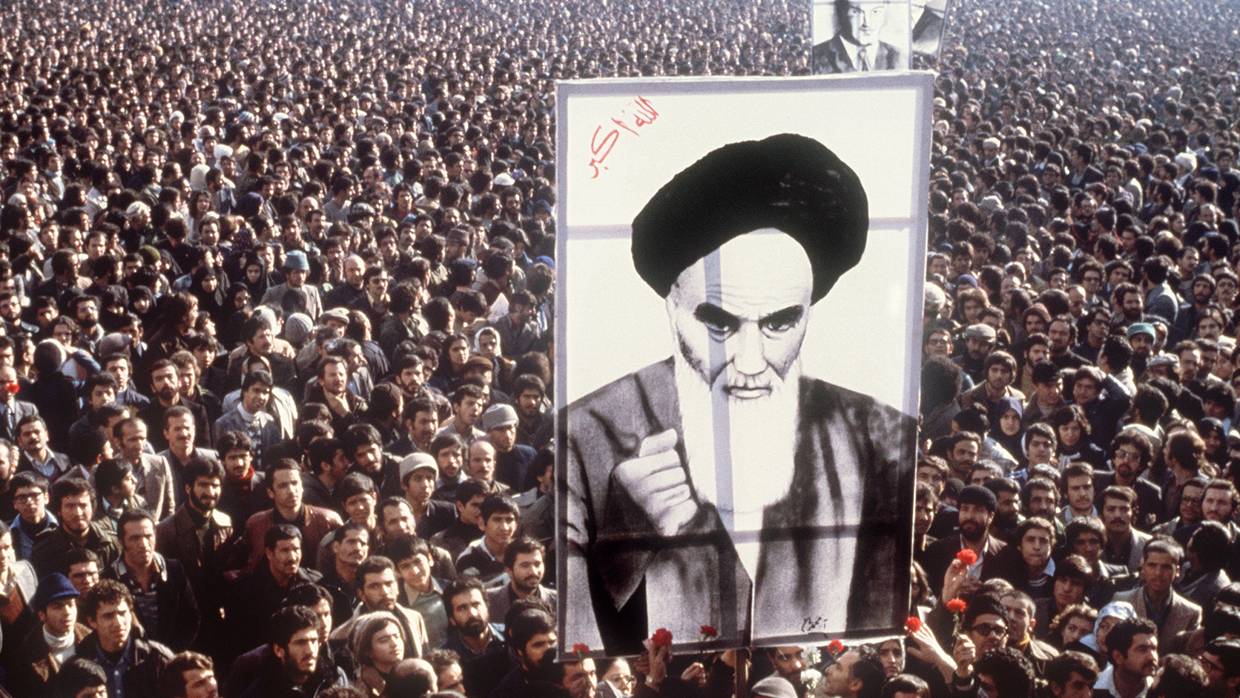

13 min read
Regine Monavar Tessone’s family fled right before it was too late, miraculously getting on the last plane out of Iran. Only later she’d discover her father’s heroic actions.
Regine Monavar Tessone grew up in Tehran in the early 70s and lived an idyllic life.
She came from a traditional Jewish home and attended school with royalty, among them being the Shah of Iran’s son, Reza Pahlavi, the crown prince.
The school maintained the highest standards and offered the best possible education in Iran. Every subject was taught in both French and Farsi. Teachers were flown in from around the world.
“As a child, I didn’t know that being a Tehrani Jew and going to a Lycée Razi with the Shah’s son put me into a different category,” says Regine.
Education was of utmost importance in her family. “My father felt that when you dumb down a society, you can control them, and in order to rise up, you need a high-level education.”
Regine’s family, while not overly observant, were traditional believing Jews who celebrated Shabbat and holiday dinners regularly. They practiced Judaism freely until 1979 when Regine’s picturesque life drastically changed.
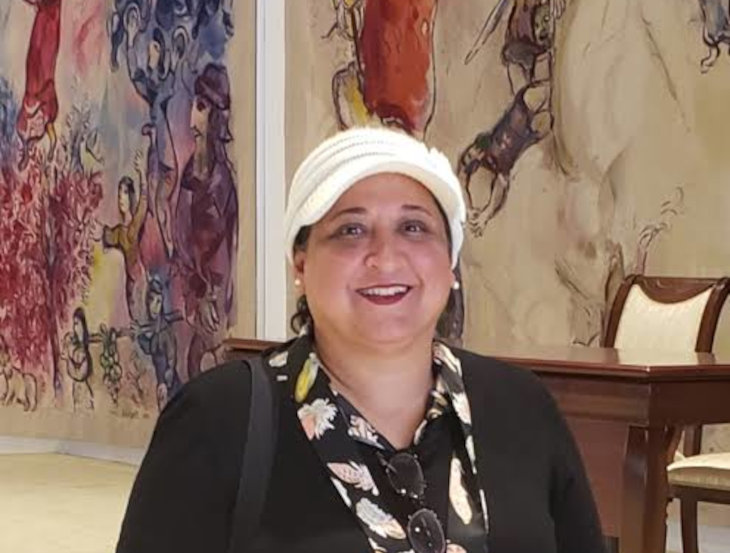 Regine
Regine
A few months prior, Regine, who was eight years old at the time, and her family took a summer trip to Israel. While things had been safe in Tehran before their trip, other areas in Iran had been deemed unsafe for the Jewish community.
“Before we went to Israel, we didn’t see any buddings of the revolution in Tehran. My parents had heard that other areas, like Isfahan and Mashad were brewing with tanks to try to block the rebellion. But in Tehran We didn’t see graffiti on the walls ‘death to the Shah’ or ‘Death to the Jews’ yet.”
Upon their return in September, they asked their cab driver what was going on locally.
The driver told them, “Thugs burned down the local library and cinema in Tehran.”
Regine explained that “the thugs” the driver was referring to were the forerunners to The Islamic Revolutionary Guard Corps that consisted of thugs from the Middle East and Iranian ex-convicts.
Regine’s father looked at her mother and said, “It’s time to leave. This happened in Germany before the Holocaust. They first burn the books, then they burn the people.” Her parents prepared the necessary paperwork immediately and made plans for their escape.
“The revolution started to unfold before our eyes. In mid-January, 1979, after the Shah of Iran went into exile to Paris, there was a curfew put in place, blackouts, and food rations.”
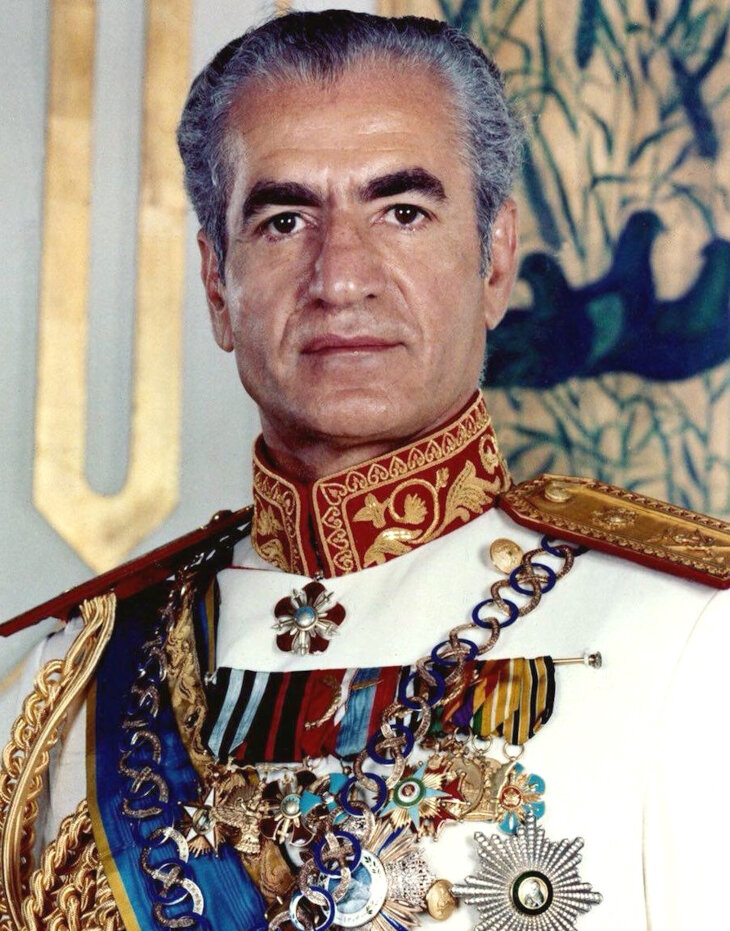 The Shah of Iran
The Shah of Iran
Regine explained that if you were caught after curfew on the street they would kill you. “I heard the bullet shots. When my brother went out one night to buy milk, they held him up and only by miracle was he released. Broadcasting stations were taken over and Khomeini’s sermons could be heard from every corner of the country. Things went from bad to worse.”
Jews were disappearing, being kidnapped, tortured and executed.
Regine explained, “Many people didn’t want to leave because they had a lot of real estate. But my father believed the conditions were going to worsen quickly. Families who didn’t heed the warning were ultimately not able to get out.”
Regine’s father asked the kids to pack a suitcase to keep under the bed and to be prepared to leave. Regine’s mother wanted to maintain a facade of normalcy and kept the kids in school. But the situation was deteriorating rapidly.
When Regine’s school experienced a bomb threat, her mother pulled her out and Regine did not go back.
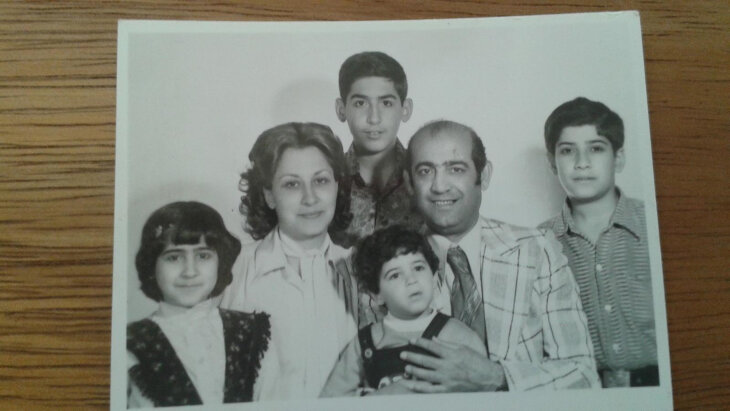 Regine and her family
Regine and her family
Many people they knew well were suddenly on the “other side.” They didn’t know who they could trust anymore. Her mother informed Regine, “If you get a call from school, don’t speak to anyone, even if it’s a teacher.” Teachers would call and say that they wanted to tutor Regine even without payment. Suddenly, her mother would become very sharp and aggressive. “I can tutor my own child!” she bellowed into the phone. Then she would hang up.
“She became very strong, assertive and rude. I didn’t understand until later that she was trying to protect us.”
Early one morning, Regine’s father woke up the entire family. Her father yelled, “‘Everyone in the car! We are running out of time!’”
As the children slowly woke up they saw him frantically packing suitcases into and on top of the car. “We had 12 suitcases for six people. It was an early winter morning, yet he was sweating.”
Regine exclaimed, “Dad, we didn’t have breakfast!”
He roared back, “Who cares about breakfast! Get dressed quickly and get into the car!”
Regine’s mother kept running in and out of the house, asking if they could bring different items.
“My father said ‘no’ and kept insisting we had to leave immediately.”
Regine reflects, “After that point, I lost my interest in anything material. My parents had the most beautiful items. Real silverware, gorgeous copper plates. They had accumulated so much wealth, and they couldn’t take any of it. I decided at that point that I don’t want to be attached to any one item. Seeing my parents so frantic and sorrowful left a major impact.”
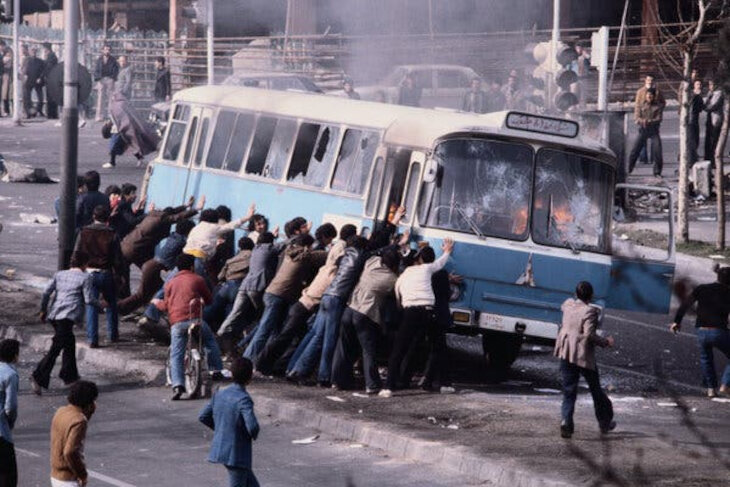 Rioting in Iran
Rioting in Iran
They all packed into the car and began to drive. Her father said, “When I tell you to roll down the windows, listen.”
The children complained, “Dad, it’s freezing!”
He nervously responded, “Don’t question me and don’t talk to me while I’m driving.”
The family made their way closer to Azadi Square where there were crowds of people.
“Dad, is it Khomenei’s birthday or something? What’s going on?” they all asked.
Instead of answering, he told the kids to roll down the windows. The crowds were throwing candy so hard, it could have shattered the glass.
The Iranian revolution had begun that would overthrow the Shah of Iran and be replaced by the hardline Shiite Islamic Republic led theocratic Ayatollah Ruhollah Khomeini.
The mob of people started to jump on the hood of the car and surround the vehicle. The car was shaking on both sides.
“One guy stuck his head through the window of the car. He had evil, hateful eyes. A non-Persian facial look.”
He demanded that Regine chant, “Death to the Shah. Long live Khomenei!”
Regine, who was unusually mischievous for a girl, was angry he had stuck his head in the car. Instead, she said, “Death to Khomenei. Long live the Shah.”
With anger, their “visitor” screamed, “What did you say!?”
Regine repeated herself.
“You’re not going anywhere until she says what I told her to say,” he threatened.
Regine’s father tried to save the family. “She’s just stupid. Ignore her. She’s mentally unwell. She doesn’t know what she’s saying.”
“I don’t care if she’s stupid. None of you are leaving.”
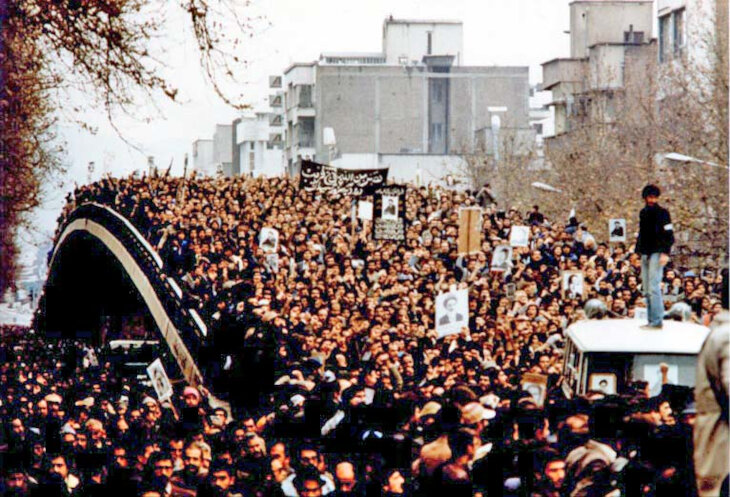 Mass protests in Iran
Mass protests in Iran
Regine’s father gave Regine a stern look. “I folded. I said, ‘Death to the Shah’ and I started to cry. I had met the Shah once. He came to our school with the French prime minister for a visit.”
The man allowed them to slowly pass by the crowd. They made it to the highway and Regine’s father accelerated.
Crowds of people were still approaching from the opposite direction.
“Khomenei is coming in today,” her father explained. The Shah’s regime was over.
Khomenei’s arrival meant that no one could leave and that all male citizens of a certain age would be drafted into the Army. It marked the end of the Persian Monarchy and the beginning of the Islamic Republic run by radical Shia ideology. Before that point, women had the option to cover their hair and body with a hijab and wrap. Afterwards, it became mandatory. Regine maintains that while the more secular Shah’s regime was not perfect, he encouraged women's rights and freedom, mandated all children to attend schools, opened up universities across Iran to empower the people and raise the economic level of Iran.
“They took over the radio, television broadcast and press before his arrival, and described what type of world it would become. He discussed exactly what he was going to do and executed it precisely. Yet everyone seemed surprised.”
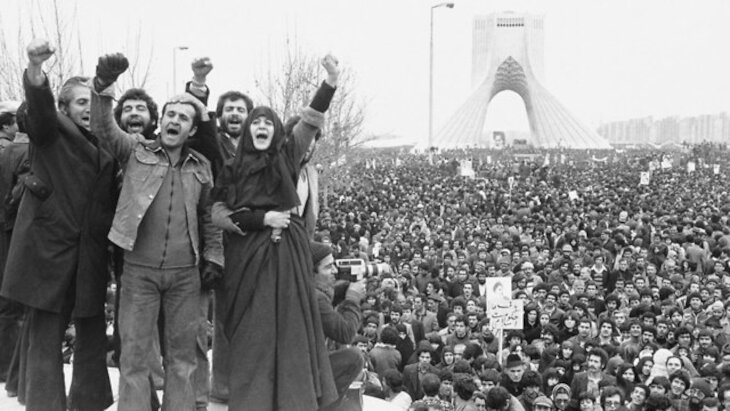
As Regine’s family was escaping, at one point the car stalled because they had four flat tires. “It’s possible someone slashed them all, but I think it was the weight of the luggage,” Regine explained. “Papa, who I never saw cry, raised his head to the sky and with tears streaming down his face prayed in Farsi, ‘God help me, I’m in your hands!’ I thought we were going to die in Iran that day.”
At that exact moment, a car randomly came by and said, “Sir, can I help you?”
Her father was willing to give him all their money to get to the airport. The man refused the money and took them straight there anyway.
Regine’s steadfast faith in God began that day.
Once the flight was safely in the air, the pilot announced, “You are the lucky ones – this is the last flight out of Iran. The Mehrabad airport is officially closed. Khomenei has arrived.”
Regine’s mother told her children, “Look back because you will never step foot in this country again as long as you live. We will never come back.”
Regine’s family escaped to Paris. The day they landed they heard on the radio in the cab ride out of the airport that a Jewish Iranian community leader had been hung.
“He was the big shot. Once you got him, every other Jewish leader was under threat. We heard about it in cab after landing in Paris. My father was also a respected leader, so we got out just in time.”
Shortly after arriving in Paris, her family moved to New York, where Regine attended a Jewish elementary school and embarked on her spiritual journey.
“My mom’s family insisted on putting us in Magen David Yeshiva, where I learned Hebrew and became observant. My father had gone back to Iran, and at one point, got stuck there. I promised God that I would keep Shabbat all of my life if he made it out alive. So I took it upon myself to keep Shabbat.”
Her father used to get upset that she became Shabbat observant because she couldn’t join in family outings. But before he passed away, he asked her to forgive him and told her that he believed the path she chose was the correct path. Regine never told him that she was keeping Shabbat for him.
Regine’s father never told her that when he went back to Iran to “take out money” he was actually using his power and connections to save numerous other Jews after the Revolution. She only learned of his incredible heroism years after he passed away.
Regine’s first hint to his heroism came when she and her husband were invited to speak at a synagogue in Great Neck. A well-known, elder local Rabbi looked at Regine and said, “I want to tell you something. I knew your father and his brother really well. Where do you think your family is from?”
She responded that her family was from Tehran for generations.
He shocked her by saying, “Nope. Your grandfather was from a city in Northern Iran, Golpayegan and I also know where every Jewish person in your community was from.”
“That’s impossible,” she joked, “unless you’re a Mossad agent.”
He answered simply, “Yes, I was a Mossad agent.” It turned out the Rabbi had worked for years with the Mossad and was placed in Iran in the early 1970s. “We had a dossier on every Persian Jew. Your dad saved numerous people’s lives by sharing valuable information that we needed to help get Jews out.”
Right after the Revolution broke out, the Islamic regime would deliberately go to offices and schools and arrest men, women, and children if they had any critical connection to the Shah. Anyone who stated anything positive about the Shah or anything negative about the Islamic Republic would face imprisonment, torture, or execution often by hanging.
Regine described, “The public hangings on cranes were horrendous. All hell broke loose upon his arrival. People literally disappeared. I felt like my Papa was a hero, but I didn’t fully understand it at the time. Even years after our escape, when we lived in New York, he would be on the phone at all hours. I would eavesdrop and overhear him directing people to send a helicopter to pick up certain individuals in Pakistan. I would ask, ‘Who were you talking to in Pakistan?’
“He would respond that I didn’t hear right, or that I was dreaming. He would tell me I have a wild imagination! But I knew what I heard and it didn’t make any sense.”
While speaking in Los Angeles, an elderly woman approached Regine and exclaimed that her father was an absolute hero.
As an adult, Regine worked in sales for a swimwear store during the day and attended FIT to become a fashion designer in the evenings. As Regine morphed into a New York fashion designer, she developed the well-known modest swimwear line called Aqua Modesta. This combined her need for the two worlds she cherished most: fashion and modesty.

One day she was held up at the swimwear store at gunpoint where she escaped with her life. Her past experiences helped Regine develop thick skin and a high level of resilience.
During her moments of intense struggle Regine said prayer was her greatest tool. “Connecting to God allows me to do the impossible because God can do the impossible. Ask God, and He will create the path for you.”
She also believes it’s important to never give up hope, no matter what. “As long as there is life, there is hope. You will make it very far with prayer and hope on your side.”
Regine continued her spiritual journey and eventually married a man who became a Rabbi.
Regine was once in a community in Omaha, Nebraska sharing her life's journey. A gentleman walked up to her and said, “I’m a Holocaust survivor. You have to make me a promise that you will write a book. Your story is just as important as mine.”
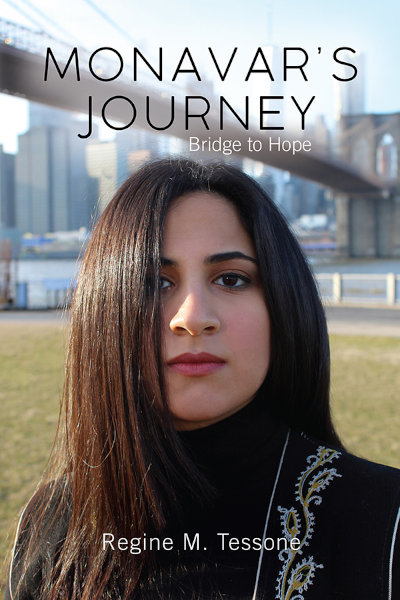
“He stood there and would not move until I promised him,” she says.
“I started to write, and all these emotions and feelings and memories flooded back. I had nightmares from it. It was a ten-year process, but now my memoir, Monavar’s Journey – Bridge to Hope, is complete and it is available for future generations.” Through her journey to freedom, Regine has emerged stronger, more resilient, closer to God, and full of light. And she is an inspiration to others.

Great article
It’s important that those who were not alive in the’70’s understand that the Shah’s government was also problematic. The great tragedy is that those who opposed his government and wanted a democratic Iran were soon purged by Khomeini’s hardliners. Nonetheless, this is a story of a narrow escape similar to those I have heard from other Iranian refugees and Holocaust survivors.
Incredible story! So many Iranians Jews including my own family were displaced as a result of Islamic radicals. I feel saddened that history keeps repeating itself in different incarnation.
Thank you for writing your book and helping future generations learn about a piece of history that should never be forgotten & hopefully never repeated.
Praying for Iran to be free again! And antisemitism to be done away with.